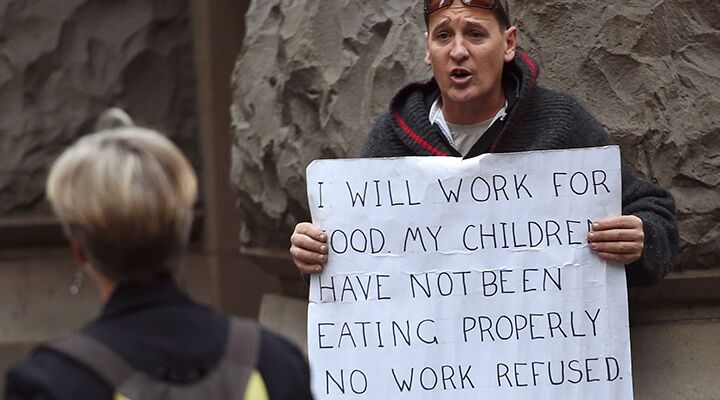
One in Six Young American Males Are Jobless or Incarcerated
The United States Congressional Budget Office (cbo) released its May report on joblessness and incarceration among 18-to-34-year-old males. During 2014, one in six of the nation’s 37.8 million young men were jobless or incarcerated: about 5 million were jobless, 1 million incarcerated.
In 1980, the rate was 11 percent. In 2014, it had risen to 16 percent.
That doesn’t necessarily mean a backyard survey of your young male friends would give you the same one-in-six statistics—different demographics have dramatically different jobless rates. The cbo report says:
Nearly one third of young men without a high school education were jobless or incarcerated, as were more than one fifth of young men with only a high school education. For young men with more education, the share was only about one tenth.
The authors of the report gave three broad reasons for the increase: economic changes, policy changes and changes in the skills of young men with less education.
Those changes affect young men with the least education the most. According to the report, “The especially large increase in joblessness among less educated young men may be partly attributable to changes in technology that have reduced demand for [their] labor.” It also suggested that federal spending on means-tested benefits (cash payments or other benefits for people with relatively low income or few assets) could have reduced young men’s incentives to work.
Yet the most striking cause suggested by the cbo was minimum wage increases. Minimum wage limits don’t generally affect those with higher education as much—workers holding a bachelors, masters or professional degrees make up only 8 percent of the total.
(Listen to Trumpet columnist Robert Morley discuss California’s minimum wage increase “not making economic sense.”)
Raising the minimum wage to $15—as is happening in New York and California—can only hurt low-skilled workers in their search for jobs. To an employer who is now legally obligated to pay workers higher rates than before, the 5 million largely uneducated young men look less desirable.
Don’t expect the push for minimum wage increases to back off though. On signing the California bill for the $15 minimum wage, Gov. Jerry Brown said, “Economically, minimum wages may not make sense.” Yet he justified his actions by saying,
Morally and socially and politically, they (minimum wages) make sense because it binds the community together and makes sure that parents can take care of their kids in a much more satisfactory way.
For those who keep their jobs, a 66 percent wage increase is a good thing. But for those one in six young American men, jobless or incarcerated, it just doesn’t make economic sense.
